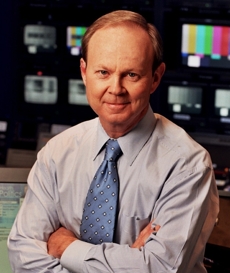Where is AI in Medicine Going? Ask The Onion.
0 View
Share this Video
- Publish Date:
- 6 December, 2023
- Category:
- Holistic
- Video License
- Standard License
- Imported From:
- Youtube
Tags

By MIKE MAGEE
One of the top ten headlines of all time created by the satirical geniuses at The Onion was published 25 years ago this December. It read, “God Answers Prayers Of Paralyzed Little Boy. ‘No,’ Says God.”
The first paragraph of that column introduced us to Timmy Yu, an optimistic 7-year old, who despite the failures of the health system had held on to his “precious dream.” As the article explained, “From the bottom of his heart, he has hoped against hope that God would someday hear his prayer to walk again. Though many thought Timmy’s heavenly plea would never be answered, his dream finally came true Monday, when the Lord personally responded to the wheelchair-bound boy’s prayer with a resounding no.”
But with a faith that rivals the chieftains of today’s American health care system who continue to insist this is “the best health care in the world,” this Timmy remained undeterred. As The Onion recorded the imagined conversation, “‘I knew that if I just prayed hard enough, God would hear me,’ said the joyful Timmy,., as he sat in the wheelchair to which he will be confined for the rest of his life. ‘And now my prayer has been answered. I haven’t been this happy since before the accident, when I could walk and play with the other children like a normal boy.’”
According to the article, the child did mildly protest the decision, but God held the line, suggesting other alternatives. “God strongly suggested that Timmy consider praying to one of the other intercessionary agents of Divine power, like Jesus, Mary or maybe even a top saint,” Timmy’s personal physician, Dr. William Luttrell, said. ‘The Lord stressed to Timmy that it was a long shot, but He said he might have better luck with one of them.’”
It didn’t take a wild leap of faith to be thrust back into the present this week. Transported by a headline to Rochester, Minnesota, the banner read, “Mayo Clinic to spend $5 billion on tech-heavy redesign of its Minnesota campus.” The “reinvention” is intended to “to present a 21st-century vision of clinical care” robust enough to fill 2.4 million square feet of space.
The Mayo Clinic’s faith in this vision is apparently as strong as little “Timmy’s”, and their “God” goes by the initials AI.
Only six months earlier, they announced a 10-year collaboration with Google to create an “AI factory” described as “an assembly line of AI solutions that are developed at scale and incorporated into clinical workflows.” They added that they are “looking beyond foundational development.”
Cris Ross, CIO of Mayo Clinic, imagines crowded hallways. He says, “I think it’s really wonderful that Google will have access and be able to walk the halls with some of our clinicians, to meet with them and discuss what we can do together in the medical context.” No small dreamer, Ross sees bright skies ahead – “an assembly line of AI breakthroughs… being able to do the kinds of things that people are doing in little bits all over the planet, to be able to do the same kinds of things but at scale and repeatedly.”
Luckily, the “AI god” will provide management infrastructure in the form of the new Mayo Clinic Platform, a group of digital and long-distance health care initiatives under the direction of physician executive missionary, John Halamka MD. As a fully registered Medical Industrial Complex (MIC) professional, he has touched all the bases – graduate of hallowed Stanford University, member NAM, wrote econometrics software for Milton Friedman, medical informatics at MIT and Harvard, birthed the software startup Ibis Research Labs, CIO at Beth Israel Deaconess, and influencer on multiple government panels.
The venture he directs will not rely on spirit alone. Venture capital dollars have helped launch two joint ventures – one intended to collect deindentified clinical data from patients far and wide, and the second “to commercialize algorithms for the early detection of disease.”
The “AI god” is wise enough not to reinvent the wheel. His/Her plan comes directly from the MIC playbook, originally designed in 1950 by Arthur Sackler. Create an integrated career ladder for academic medical scientists that will seamlessly carry them from Medicine to Industry to Government and back again, reward all parties with exclusive patents and hidden incentives, and trust that the little “Timmy’s” of the world will find some way to survive.
Of course, the “AI god”, to reach this level of power so quickly, has had to make certain sacrifices, notably replacing one of the two bedrock commandments that have served to guide human behavior for several thousand years:
The first – “Love the Lord your God with all your heart and with all your soul and with all your mind” – can stand, as we transfer loyalty to an over-arching artificial intelligence.
But we must toss the second, “Love your neighbor as yourself.” And embrace instead, “Love technology as yourself”, and all the riches will follow.
And for the patients? Have faith that when science and technology finally “defeats disease,” your health will follow.
Mike Magee MD is a Medical Historian and regular contributor to THCB. He is the author of CODE BLUE: Inside America’s Medical-Industrial Complex.














